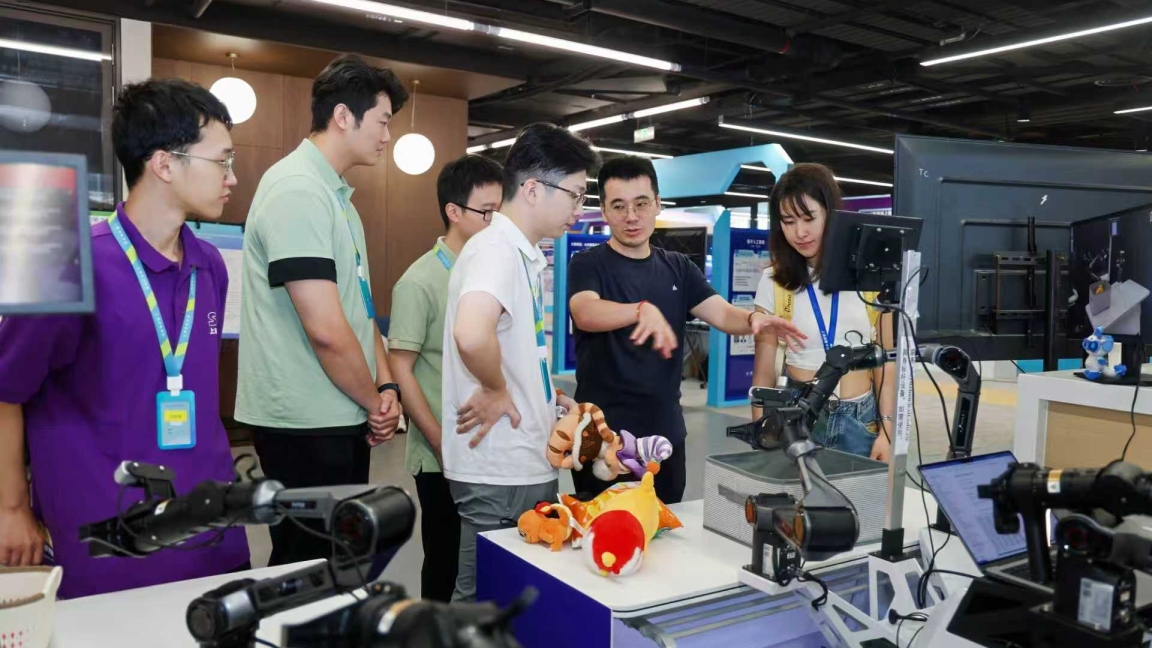
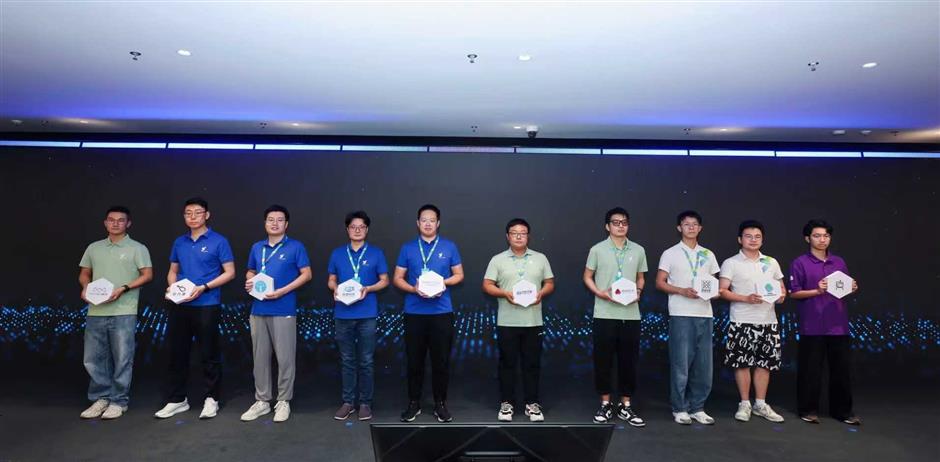
Ten startup companies founded by faculty and students of the Shanghai Innovation Institute are awarded at the SII TechFest 2025 conference on Friday.
At an unassuming facility in Shanghai, a team of young researchers recently demonstrated how artificial intelligence could accelerate scientific discovery.
Their AI system discovered 100 novel network architectures in just two days – a task that would typically take human experts about 2,000 hours per discovery.
The achievement represents just one of many breakthroughs emerging from the Shanghai Innovation Institute (SII), which has rapidly become a key force in global AI research since it opened in September 2024.
The institute operates on a simple but powerful premise: AI is a young field that belongs to young people. The philosophy is reflected in its faculty and approach to education.
SII's 81 full-time tutors average just 36 years of age – unusually young for a research institution of this caliber.
Nearly 800 students are enrolled, including 261 already admitted for the 2026 academic year. The teaching staff is further complemented by 130 part-time tutors and 120 industry mentors.
The educational approach breaks from traditional models. Instead of conventional classrooms, SII emphasizes intensive interaction between teachers and students.
"Here, I've shifted from 'following my advisor's research direction' to 'independently targeting cutting-edge problems'," said Wang Dianyi, a first-year doctoral student.
He leads the "Intelligent Visualization" project, which has yielded research findings showcased at an international conference and secured a patent with Chinese tech giant Huawei.
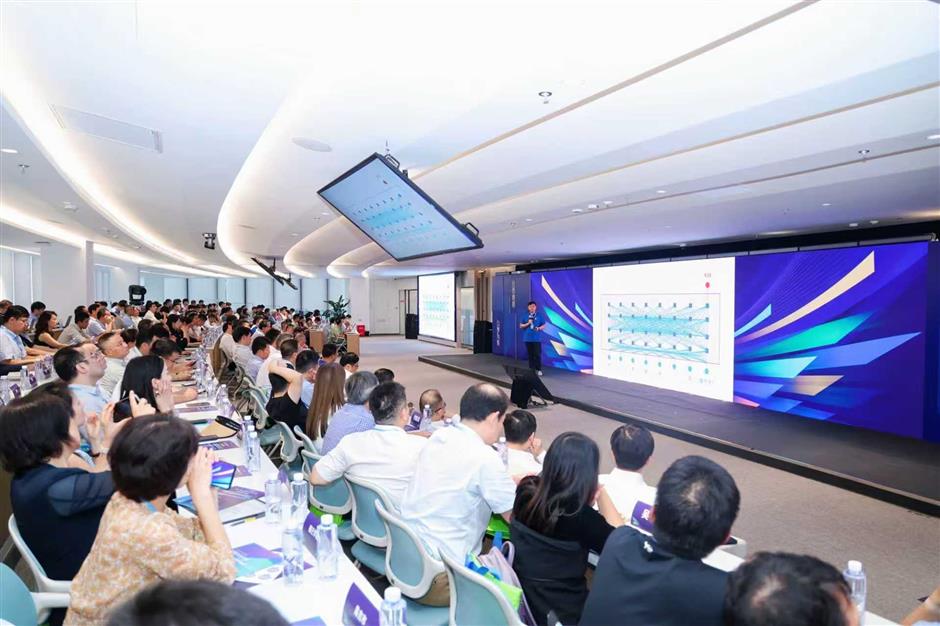
SII scientist presents latest breakthroughs during Friday's Techfest 2025.
The institute has developed a unique recruitment process for students. Through five admission events, SII received over 3,300 applications and accepted more than 800 students from 45 different academic disciplines.
"The institute is committed to discovering all types of talented individuals who are willing to take risks, have a sense of responsibility, possess potential, and are skilled at exploration," explained Ding Xiaodong, SII's executive vice dean.
"They include the exceptionally gifted, the uniquely specialized, and the comprehensively excellent," he added.
The selection process uses hackathons and training camps to identify students who can solve real-world problems, focusing on practical innovation rather than test scores.
SII's research agenda spans five key areas: cognitive intelligence, situational intelligence, embodied intelligence, scientific intelligence, and AI infrastructure.
In its first year, the institute has launched 20 courses (updated 17 times), initiated 6 flagship projects and 5 scientific intelligence research initiatives.
It has organized 10 master lectures by Turing Award winners and other eminent scholars, along with over 210 quality academic presentations.
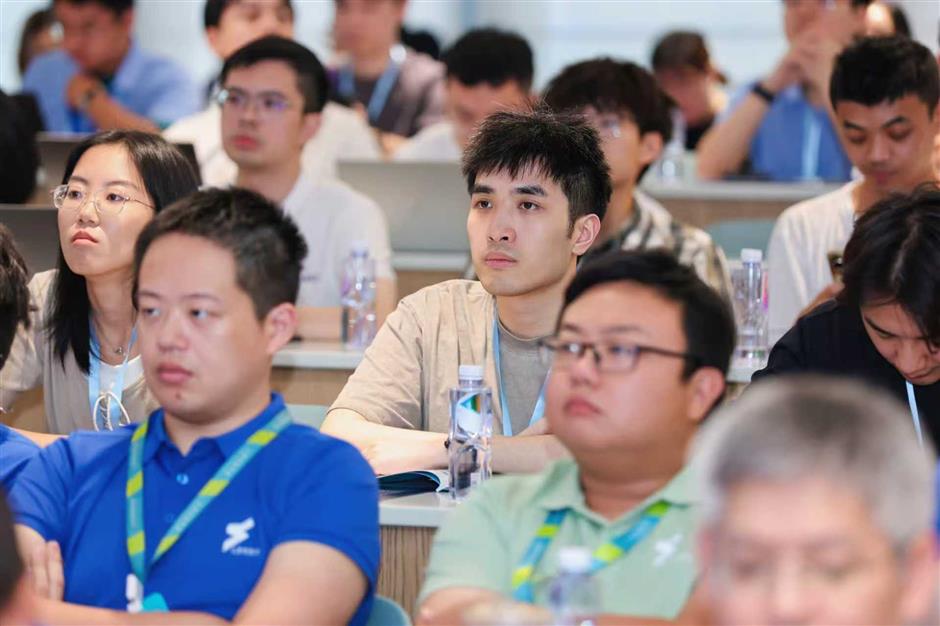
Young SII researchers attend Friday's TechFest 2025 Keynote presentations.
Some of the most impressive work comes from Liu Pengfei's team, whose LIMO project has attracted attention from former OpenAI chief scientist Ilya Sutskever. Meta's research team has sought their advice on core algorithms.
Their work has been starred over 5,700 times on GitHub, downloaded more than 100,000 times on HuggingFace, and is used by leading institutions, including MIT, Stanford and Google.
"We stand at the convergence of three improbable events – the AI revolution, the unique SII model, and substantial resource allocation," said Liu, who spent 350 days at the institute in its first year.
"If we don't do something that changes the world, we're wasting this historical moment," he added.
SII has translated research into practical applications. The institute has partnered with more than 50 leading companies and unicorns, receiving 500 million yuan (US$70.2 million) in donations or funding.
It has incubated 10 startup companies founded by faculty and students, attracting nearly 500 million yuan in capital investment.
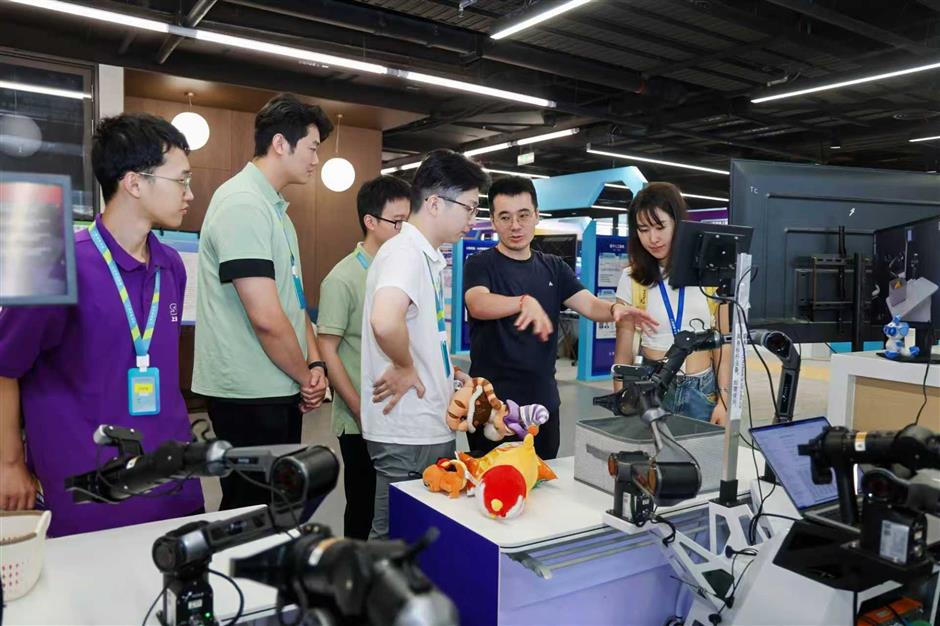
Young SII researchers unveil their newly developed robots on the sidelines of the conference.
Luo Jianlan, for instance, is a full-time tutor at the institute and chief scientist at AgiBot, a Shanghai-based robotics startup. Her team has developed embodied intelligent dual-arm assembly systems that are now being deployed in industrial settings.
"In the future, we plan to have robots challenge human champions in snooker world championship events," Luo said.
"We will also replicate our technology across more production lines for mobile phones, cars, and other products. Such approach both raises the technical ceiling and delivers industrial value."
SII has made significant investments in the computational infrastructure needed for advanced AI research.
With support from national ministries and the Shanghai government, the institute has established strong computing capabilities and a huge data platform.
The infrastructure supports what SII calls an "open-source intelligent computing ecosystem" that runs AI models on Chinese chips, while sharing with the global community.
"We don't just look at academic influence," explained Qiao Yu, SII's vice dean.
"We also consider open-source community downloads, model usage, industrial impact user numbers, client numbers, plus social influence and strategic contributions."
As SII enters its second year, the institute continues to expand its reach.
The inaugural SII TechFest 2025 conference on Friday saw the launch of a "University Computing Power Alliance" and the recognition of 10 startup companies founded by faculty and students.
"SII is a gift of our era. Here, you find people who genuinely believe 'changing the world' isn't an empty slogan," said the researcher Liu.
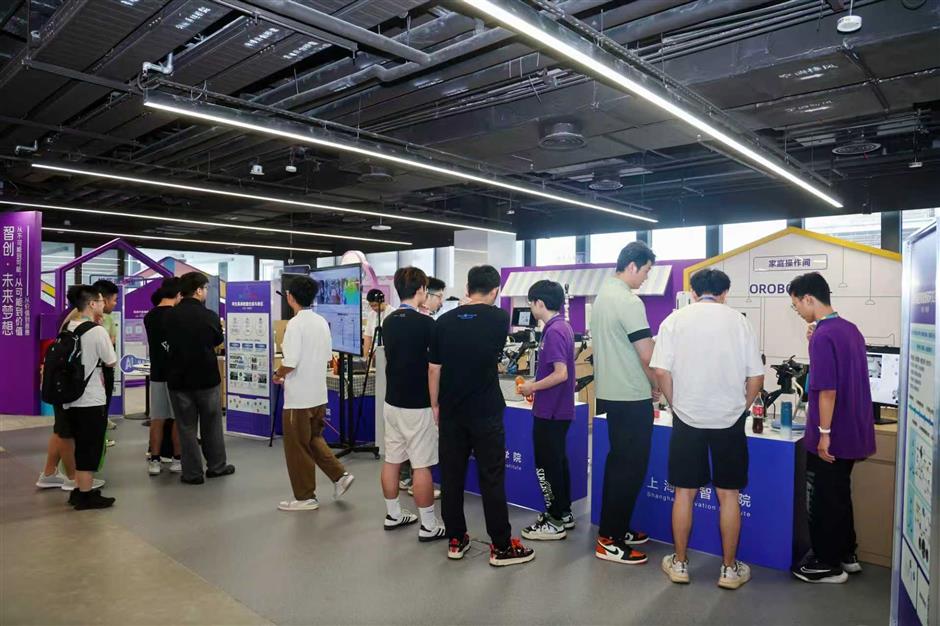
Young SII researchers unveil their newly developed robots.

